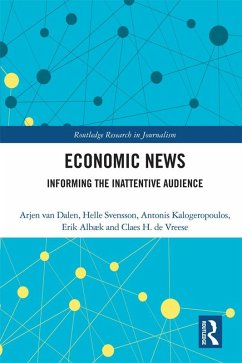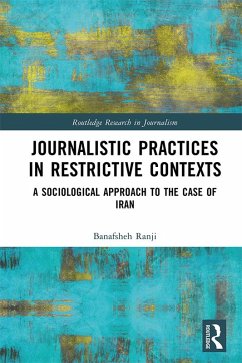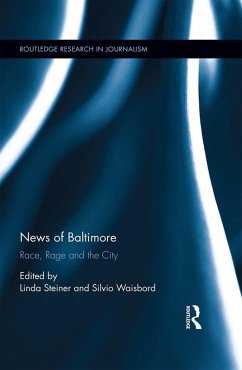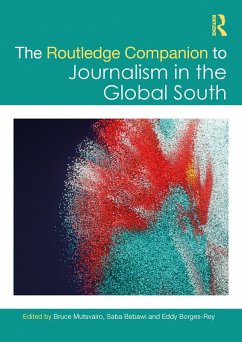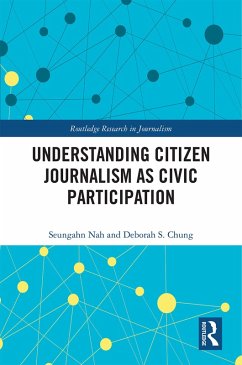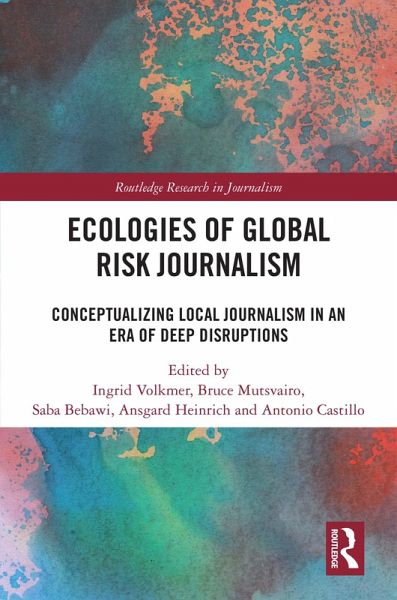
Ecologies of Global Risk Journalism (eBook, ePUB)
Conceptualizing Local Journalism in an Era of Deep Disruptions
Redaktion: Volkmer, Ingrid; Castillo, Antonio; Heinrich, Ansgard; Bebawi, Saba; Mutsvairo, Bruce
Versandkostenfrei!
Sofort per Download lieferbar
42,95 €
inkl. MwSt.
Weitere Ausgaben:

PAYBACK Punkte
21 °P sammeln!
This volume investigates the practice and challenges of journalism addressing globalized risk from various world regions.With chapters written by members of the Global Risk Journalism Hub, an international research network of leading scholars from the Global North and Global South, this collection brings together international journalism researchers from a wide range of theoretical and methodological backgrounds to uncover key issues of "global risk journalism" within their regional contexts. Using the climate crisis and the COVID-19 pandemic as a point of departure, this book explores the eff...
This volume investigates the practice and challenges of journalism addressing globalized risk from various world regions.
With chapters written by members of the Global Risk Journalism Hub, an international research network of leading scholars from the Global North and Global South, this collection brings together international journalism researchers from a wide range of theoretical and methodological backgrounds to uncover key issues of "global risk journalism" within their regional contexts. Using the climate crisis and the COVID-19 pandemic as a point of departure, this book explores the effect of digital platforms on news production, how the reporting of these transnational emergencies affects the misinformation ecosystem, the power relations between global and local news sources and the ethics of conducting research in the face of globalized crises.
This truly international and comparative volume will interest researchers and students of global and local journalism, risk journalism, journalism practice, media and communication studies, intercultural communication, political science and sociology.
With chapters written by members of the Global Risk Journalism Hub, an international research network of leading scholars from the Global North and Global South, this collection brings together international journalism researchers from a wide range of theoretical and methodological backgrounds to uncover key issues of "global risk journalism" within their regional contexts. Using the climate crisis and the COVID-19 pandemic as a point of departure, this book explores the effect of digital platforms on news production, how the reporting of these transnational emergencies affects the misinformation ecosystem, the power relations between global and local news sources and the ethics of conducting research in the face of globalized crises.
This truly international and comparative volume will interest researchers and students of global and local journalism, risk journalism, journalism practice, media and communication studies, intercultural communication, political science and sociology.
Dieser Download kann aus rechtlichen Gründen nur mit Rechnungsadresse in A, B, BG, CY, CZ, D, DK, EW, E, FIN, F, GR, HR, H, IRL, I, LT, L, LR, M, NL, PL, P, R, S, SLO, SK ausgeliefert werden.





